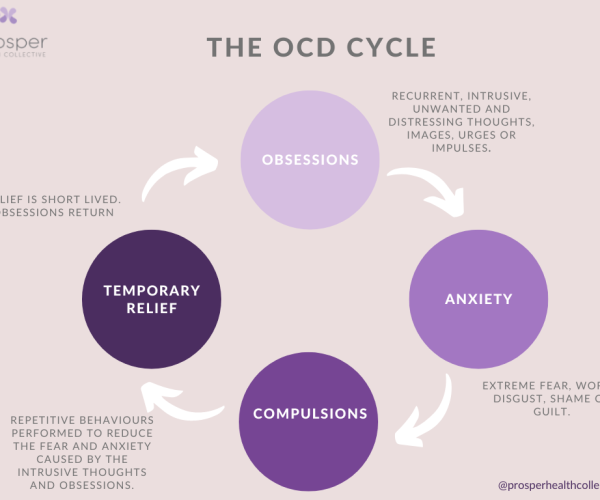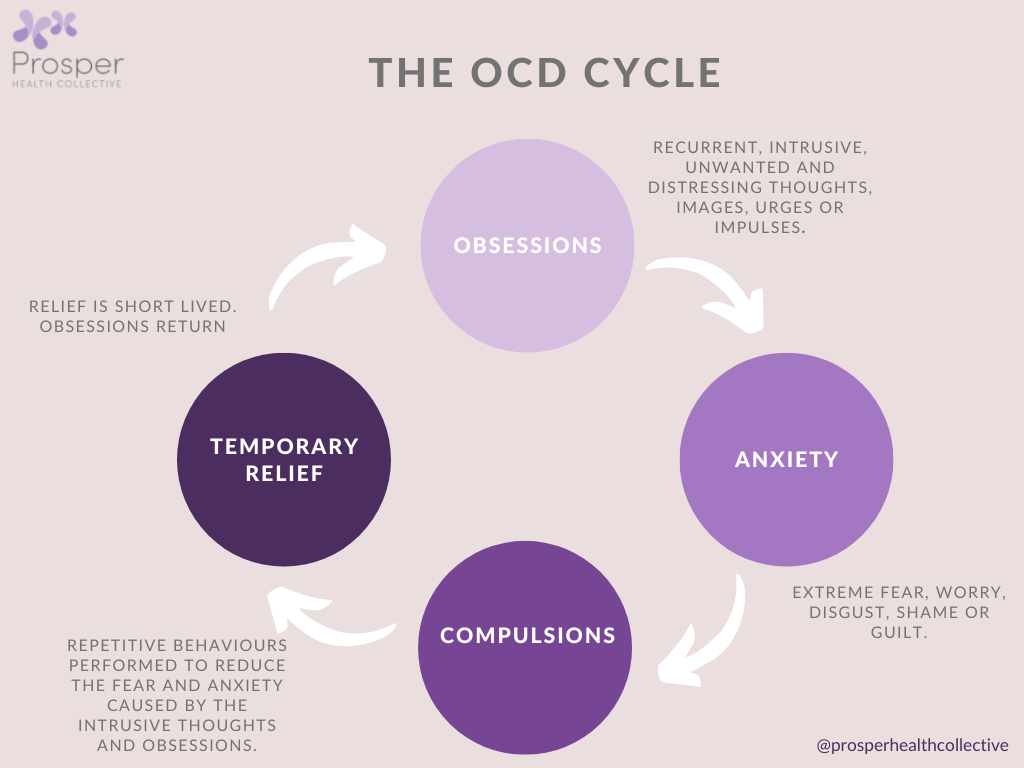The OCD Cycle

Obsessive Compulsive Disorder (OCD) grows and is maintained by a very clear and consistent cycle that occurs in 4 stages.
These four stages of the cycle consist of:
Obsessions: The cycle starts with obsessive thoughts. These are recurrent, intrusive, unwanted, and distressing thoughts, images, urges or impulses. Some common obsessions include contamination fears, religious obsessions and harm obsessions.
Anxiety: As a result of the distressing or intolerable nature of these obsessions, individuals with OCD experience heightened anxiety and distress. During this stage, these individuals may feel significant fear, worry, disgust, shame or guilt.
Compulsions: The anxiety can be so intense that people with OCD may believe that the only way to relieve this discomfort is by performing compulsive behaviours and rituals. These are repetitive behaviours that individuals engage in to reduce the fear and anxiety caused by the intrusive thoughts and obsessions. Common compulsions can include repetitive hand washing, repeatedly seeking assurance, repeated checking, and mental compulsions.
Temporary relief: after the compulsion is performed, these individuals may experience temporary relief. This relief can be short-lived, before the obsession often returns stronger than before and leaving them trapped in a cycle of constant search for relief and engaging in compulsive behaviour to relieve their anxiety.
The more that the individuals with OCD engage in compulsions, the more it reinforces the anxiety and fear, and this vicious cycle continues. These obsessions and compulsions can be extremely time-consuming and can cause significant distress in important areas of life, such as school, work and social activities.
There are several evidence-based interventions for OCD, including Cognitive Behavioural Therapy (CBT) and Exposure and Response Prevention (ERP), which is considered to be the “gold standard” treatment approach for OCD.
If you or a loved one is experiencing symptoms of OCD, please do not hesitate to reach out to your GP or a mental health professional to discuss your treatment options.
